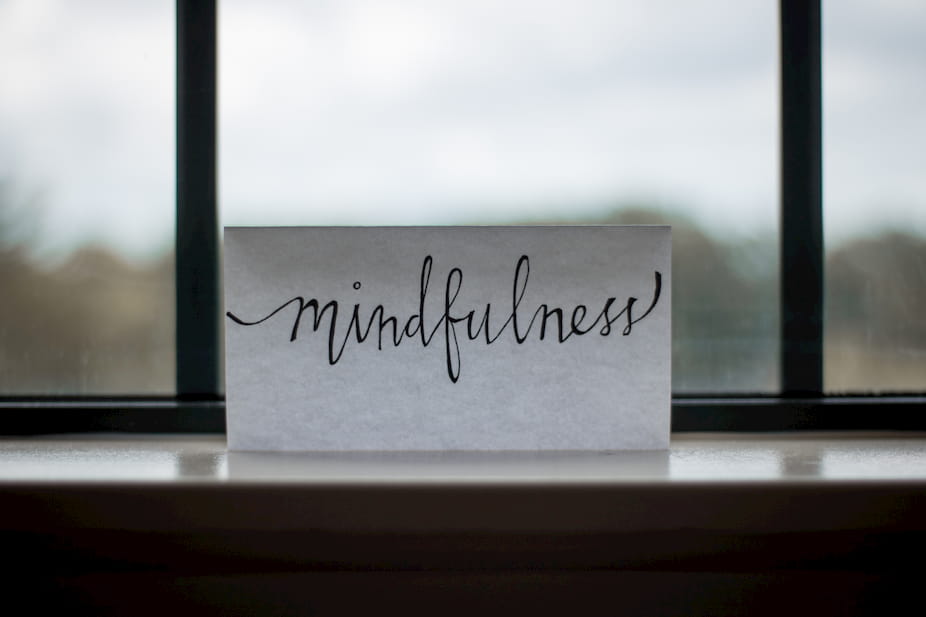
When we have busy or stressful lives, we may lose awareness of the present and easily become overwhelmed when juggling the conflicting demands of our day.
When we feel overwhelmed, we can overthink matters and this can be exhausting. It is likely that many of the thoughts causing us stress or discomfort see us focus too heavily on the future or the past. Anticipation, worrying about worst-case scenarios or ‘what could go wrong’ might see us too focused on the future and can be linked to anxiety.
On the other hand, guilt, shame, regret or embarrassment might mean we are too concerned with what has happened in our past and can be linked to depression.
The dangers of slipping into autopilot
Being distracted too often by thoughts of the past or future can lead us to operate on autopilot, or what we could call mindlessness. This can lead us to miss important cues from our bodies (such as rising stress levels or physical tension) and give rise to thinking patterns (such as catastrophising, self blame or black and white thinking) which may be associated with anxiety or depression.
While the temptation for some may be to quieten these uncomfortable thoughts with unhealthy coping mechanisms such as alcohol, comfort eating or chronic overwork, there is a healthy and more effective alternative. Mindfulness.
What is mindfulness?
Mindfulness is paying attention to the present moment, in an open, curious and non-judgmental way. When we practice mindfulness, there is no need to do battle with our thoughts. Instead, we allow and accept them with curiosity, and can see them wash away as easily as a leaf on a stream or a cloud in the sky.
When we pay attention to the present moment we can more effectively tune in to what our bodies are telling us, and in this way recognise rising emotions such as stress. With mindfulness, we can also observe, accept and detach ourselves from past or future-focused thoughts and bring ourselves back to the present moment. This is a great way to manage stress and anxiety.
The benefits of mindfulness according to science
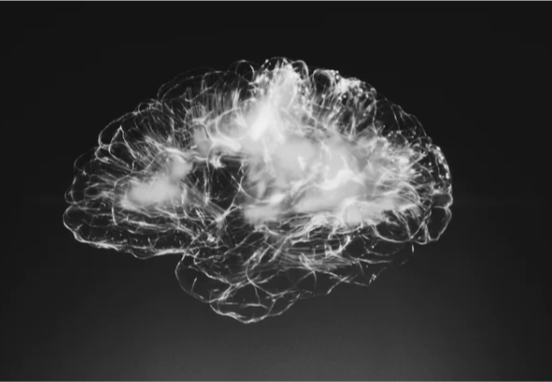
Scientific evidence shows us that practicing mindfulness can lead to physical changes in our brain. Specifically, the amygdala, the area of our brain which detects fear and prompts the ‘fight or flight’ response to stress, is shown to shrink with mindful practice. At the same time, the prefrontal cortex, responsible for attention, concentration and decision making, thickens.
This means that through practicing mindfulness we can physically reduce the emotional fear centre of our brains and strengthen the attention and concentration centre, which in turn can assist in preventing and managing anxiety and depression.
The best part however, may be in knowing that mindfulness can be practiced during everyday activities; it doesn’t need to consume any additional time in our busy lives. As little as ten minutes of mindfulness practice can help in managing stress, anxiety and depression.
5 daily mindfulness practices to help manage stress, anxiety and depression
1. Eat mindfully
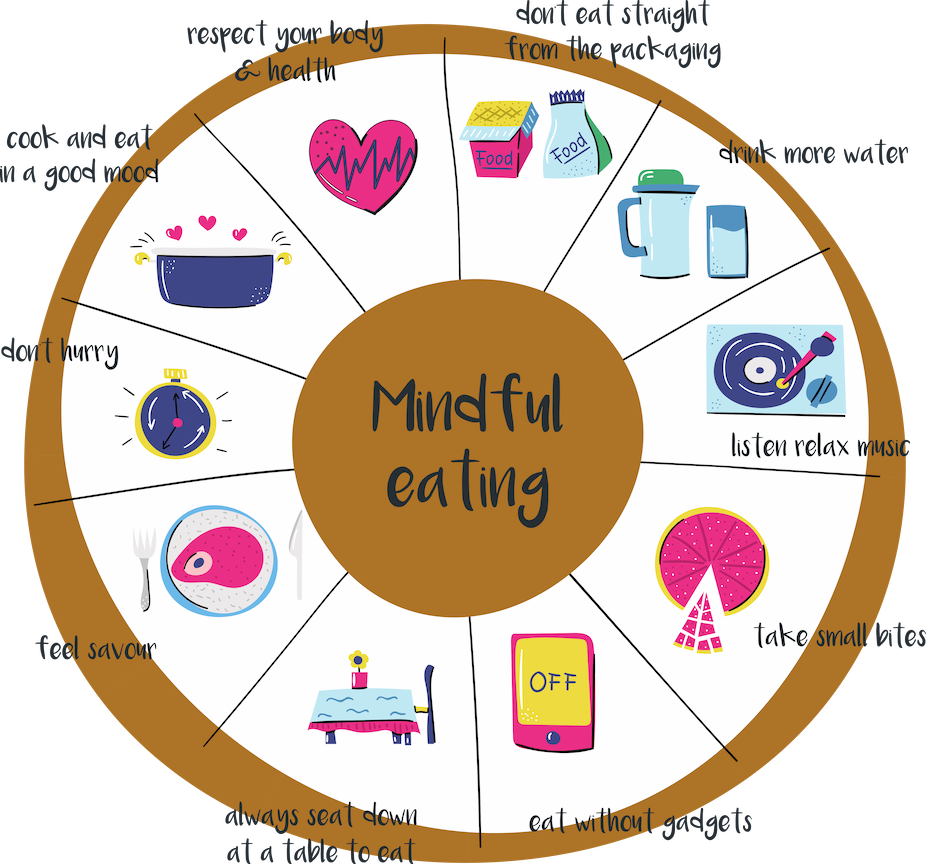
Pay attention to the appearance, taste and smell of your food, and the physical sensations or sounds you might experience while eating. By savouring each mouthful you not only tune into the present moment but are also likely to enjoy your food more. When we eat mindfully, we tend to eat less as we are more alert to our bodily cues of fullness.
2. Walk mindfully

This could include drawing your attention to how you hold your body while you walk. Mindfully drop your shoulders and pay attention to your posture. Tuning in to the sights, sounds and smells around you as you walk through nature allows your brains to ‘switch off’ from thoughts associated with the past or future.
3. Breathe mindfully

Be mindful of your breathing by focusing on physical sensations. For example, focus on how it feels to breathe, where the air is moving, the sounds of your breath and how your chest and body are moving in response.
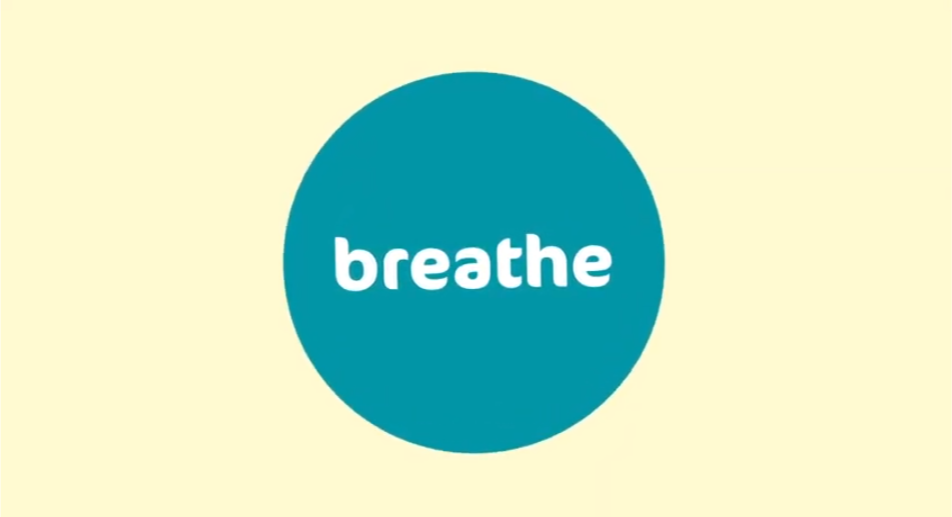
4. A mindful body scan

Take a break during the day and allow yourself time for a mindful body scan. Start at your toes and progressively move around your body to the tip of your head. As you do, mindfully recognise any tension or sensations such as warmth, cold or tingling.
5. Tune into the five senses

Daily activities such as brushing our teeth or having a shower can also be practiced mindfully. Tune into your senses curiously and in a non-judgmental way observing the sounds, smells, sights, tastes and physical sensations; allowing each droplet to wash over you. Allow your thoughts and worries to act as the droplets of water; being present and then washing away.
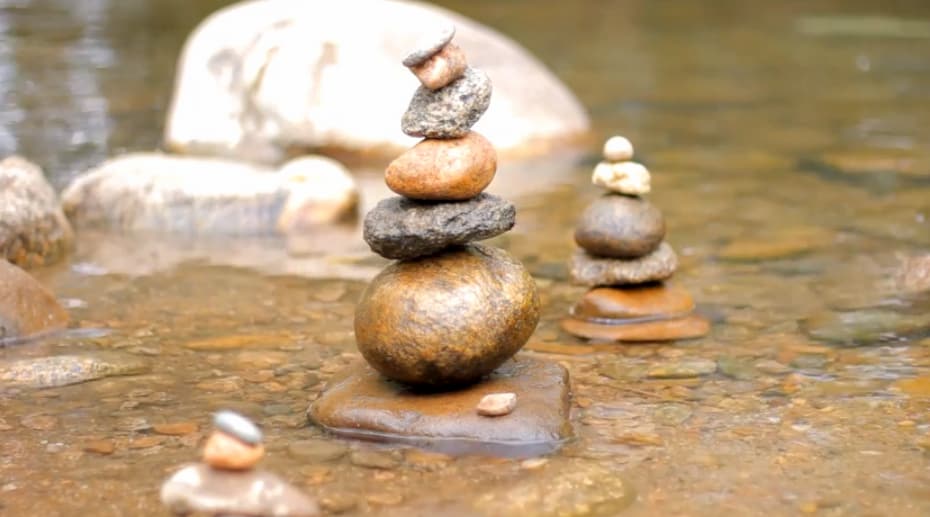
As with any skill, mindfulness comes with practice.
Don’t worry if you get distracted by thoughts. You will, that’s what your mind is designed to do!
Instead, just notice when you get distracted, label the thoughts and bring your attention back to the moment. Non-judgmentally accepting when we become distracted and reminding ourselves to come back to the present is all part of the mindful experience.
With practice, mindfulness can be a powerful way to manage stress, alter our brain structure and reduce anxiety and depression.
Knowing that these benefits can come with just ten minutes a day of mindfulness, which activities will you choose to practice mindfully today?
About the author: Amanda Lehman (BAPsych(Hons), Post Grad Dip Psych, Dip Ed.) is a supportive and encouraging psychologist who believes in positive and preventative psychology. Amanda works primarily within the Acceptance and Commitment Therapy (ACT) and Cognitive Behavioural Therapy (CBT) frameworks. In sessions with clients, she also uses mindfulness, motivational interviewing and coaching. With this combined approach, she empowers her clients to develop a greater understanding of their thoughts, feelings, behaviour and impact on others.
